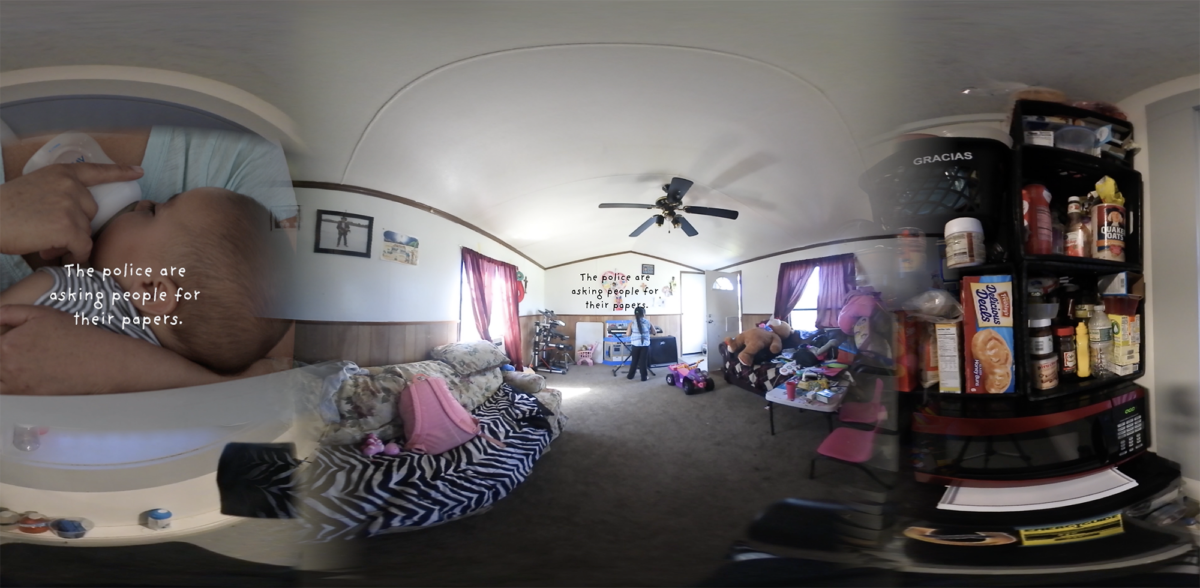by Aggie Ebrahimi Bazaz & Liz Miller
Originally published in The Digital Radical, a publication of the Center on Digital Culture and Society at The University of Pennsylvania
EXCERPT
As documentary filmmakers, the concept of power is essential to how we think about shaping and telling stories.
We consider ourselves digital radicals because we both proceed from a commitment to critical reflexivity as a means of leveraging documentary forms, techniques, and processes toward exposing and challenging power. We recently expanded our documentary practices to include 360-degree Virtual Reality (VR) documentary filmmaking.
In How to Tell a True Immigrant Story (2019), Aggie and her collaborators in the United States use experimental, aesthetic approaches to invoke self-reflective practices in members of dominant culture with regard to discourses of immigration and how those inscribe or reinforce power. In SwampScapes (2018), Liz and her collaborators in the United States and Canada are rethinking pedagogical uses of VR within an environmental justice framework and supporting a movement towards narrative sovereignty[i].
Our projects are quite different in form and theme but resonate with each other in their emphasis on collaboration and a desire to use the work for social change. We proceed from questions like: Who has access to 360 VR? What are the histories of VR and the values or aspirations that have accompanied each technological advance? What are the ethical frameworks in VR? How might immersive storytelling subvert rather than re-inscribe power inequities? What are the environmental considerations of the tools we are using, and how can we foster awareness about the infrastructures they come from and the waste they produce? What new forms and visual tropes might we discover through collaborative endeavors? What can VR do to liberate documented peoples (conventionally called “documentary subjects”) from the form’s “tradition of the victim” while addressing our most intractable social problems? Our process and our questions are ongoing.
Here in these reflections, we (Liz and Aggie) each describe our various production processes, collaborations, and theoretical foundations for documentary projects we produced in 360-degree VR. We describe our processes separately but within the shared space of this article. Separately, we demonstrate how techniques in documentary VR must be responsive to each project’s specific sociopolitical contexts and the nature of the social problems each project confronts (e.g. visibility and immersion mean different things in different contexts). And together, our overlapping approaches illustrate our conviction that, through community-informed projects that apply decolonizing models and critical scholarship to documentary work in 360 VR, we and our project partners might avoid a hyper-realized ethnographic gaze within documentary VR and instead optimize the radical potential of this immersive tool.
